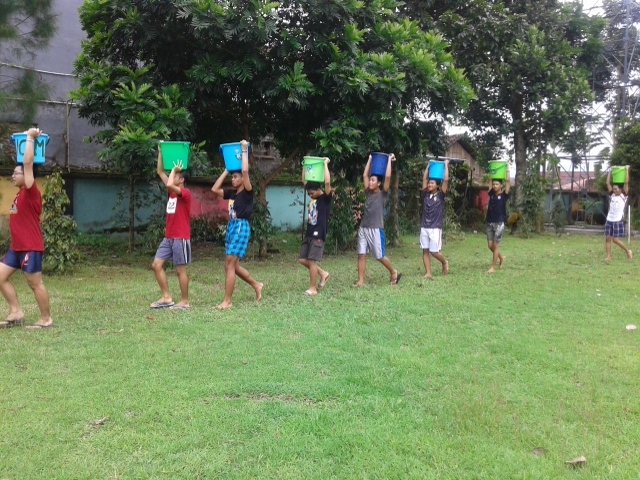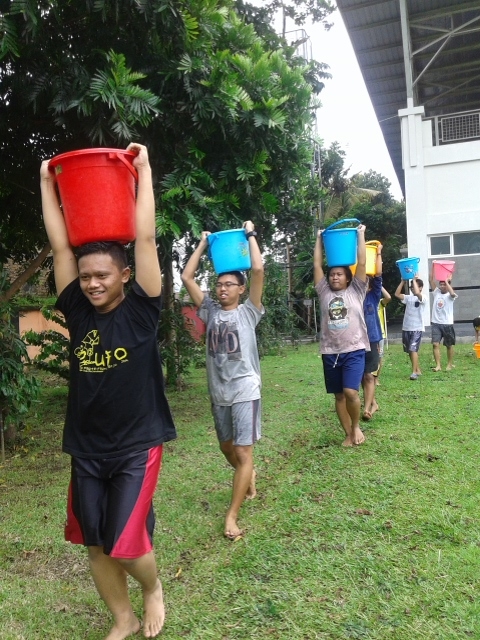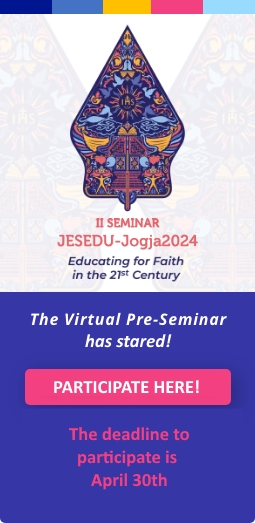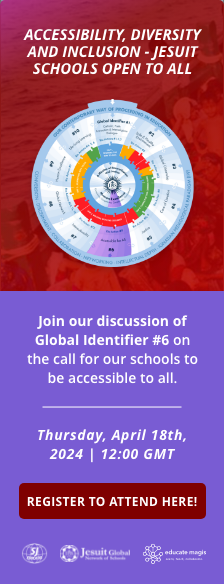The Ignatian Pedagogical Paradigm has become the spirit by which we develop our learning in Minor Seminary St. Petrus Canisius of Mertoyudan in Indonesia. In our civic education learning, I also use Ignatian Pedagogy to develop intellectual skills, heart skills, and to help students make decisions and take action. Experiences, reflection, action and evaluation is the cycle to build the deepest learning and to build the spiritual character of our students.
Today we did an activity whereby every student in the yard brought in a pail each, and filled their pail with water. Once they had filled their pails with water, each student had to place it on their head and walk around the football yard five times. After this activity, our student shared the experience of walking around the football yard carrying a full pail of water on their heads. Every student talked about their experiences. They felt tired, sad, angry, stressed, sick, but among the students they also shared happiness and appreciation for this experience.

After our students shared their experiences, their teachers showed a video about the water crisis in many countries for example in Indonesia, Venezuela and many countries in Africa. With the direct experiences of our students and indirect experiences from the water crisis in many countries, teachers provided the students with many questions to help them find the essential values of life and the essential actions to help decrease the water crisis. Examples of the questions are:
- What is your feeling about your experience to carry the pail full of water on your head around the yard?
- What did you feel when you saw the water crisis phenomenon which is affecting many countries?
- What are possible strategies to minimize the water crisis? And what can you as students do?
- What are the values of life which you have learnt this exercise?
Some of the questions were designed to access the deepest feelings of our students, for example: in what way do you think you may have contributed to the water crisis until now? why has this water crisis happened? The questions are designed in order to build self awareness that I also contribute to the water crisis. And what will you do (action) to help others to help resolve the water crisis (man for with others). What is the reflection from this situation and phenomenon? What is the deepest meaning you get from this situation?
What are the goals of this learning? What is the meaning for our students in this exercise?
As teachers in the digital era, we must know our students’ context this is also an fundamental element of the IPP. Instant gratification, superficiality and individualism are part of the character describing our students today. Besides that, our students also have special qualities, for example high level of curiosity / desire for exploration, high critical thinking and students in this era also have a great ability to engage in creative thinking. Understanding the context of our students is very important in Ignatian pedagogy in order to effectively contribute towards the intellectual, spiritual and emotional formation of our students.
With these experiences, our students can feel what others feel in the water crisis situation, so the empathy of our students and the spirit to help others is developed. In Ignatian pedagogy, we must not only stop with the reflection but also help the students to make the decision and take action, i.e. the “magis”, as well as evaluate the whole experience.
If we combine our learning with the challenges posed by living in the 21st century, we will see that the Ignatian Pedagogical Paradigm helps us to answer these challenges. Living in the 21st century, wee strive for our students to develop the following four skills: communication, collaboration, critical thinking and creative thinking (4Cs). Using the Ignatian Pedagogical Paradigm, the elements of context, experiences, reflection, action and evaluation can help develop the above 4Cs in our students.


